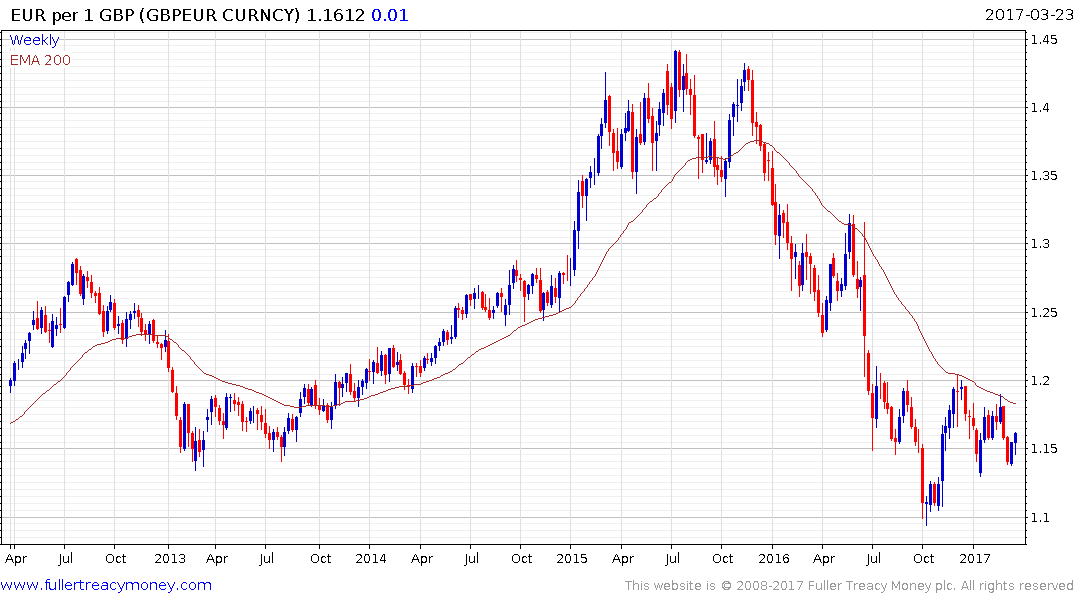Juncker Puts Price on Brexit as Italy Offers Early Trade Talks
This article by Tim Ross for Bloomberg may be of interest to subscribers. Here is a section:
“We have to calculate scientifically what the British commitments were and then the bill has to be paid,” he said.
Asked if the bill will be 50 billion pounds, which is about 58 billion euros, Juncker replied: “It’s around that.”
May plans to launch Britain on a two-year process of negotiations to quit the EU on March 29, by triggering Article 50 of the bloc’s Lisbon Treaty. The size of Britain’s exit bill will be among the first -- and most contentious -- topics for discussion, with British ministers indicating they do not believe the U.K. is liable for such a large sum.
Juncker’s statement is the clearest indication from the commission of the size of the bill, and is in line with an estimate cited by Austrian Chancellor Christian Kern last month.
So far, the EU’s chief Brexit negotiator, Michel Barnier, has argued that the terms of the divorce, including the size of the bill, must be settled first, before any negotiations over the new trading relationship between the U.K. and the EU can begin.
Britain wants talks on the exit and a new free trade deal to run simultaneously -- and its argument received a boost on Friday when the Italian government said the two sets of talks could “overlap” to some extent.
“We will be at the end of the exit negotiation and at the same time we can start the new deals on trade, and we hope also for example on security,” Italian junior minister for European Affairs Sandro Gozi said in a Bloomberg TV interview.
As far as I can make out the net figure for what the UK contributes to the EU every year is less than £10 billion, at least according to the figures quoted here. Therefore, the £50 billion the EU is hoping for represents between five and seven years lost income.
If the UK does in fact agree to pay then the question of access to EU markets is a given and would represent the best possible outcome because it would put an amicable finite end to the payments while also ensuring a clement business environment for the UK economy. The alternative of course is that the EU pushes for less access and demands the money anyway which would trigger a swift breakdown in negotiations. It would also likely trigger reactionary policies in the UK such as direct competition on regulation, taxation, defence and currencies.

The Pound has already collapsed against the Euro and is now trading close to the 2008 lows. The pace of the decline moderated from late 2016 but the rate continues to encounter resistance in the region of the trend mean. A sustained move above €1.18 would be required to confirm a return to Pound dominance.


